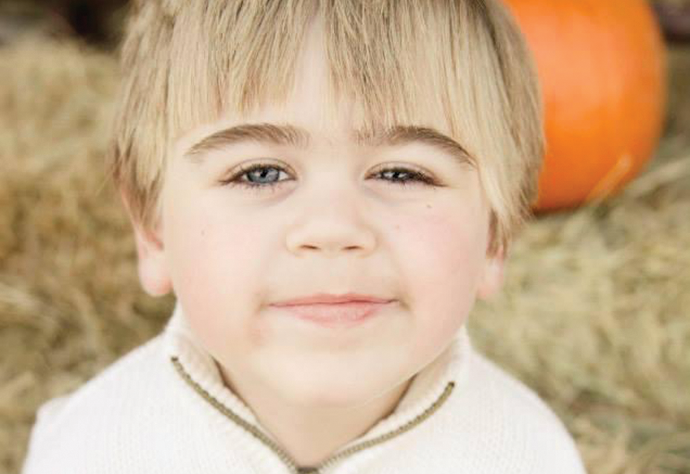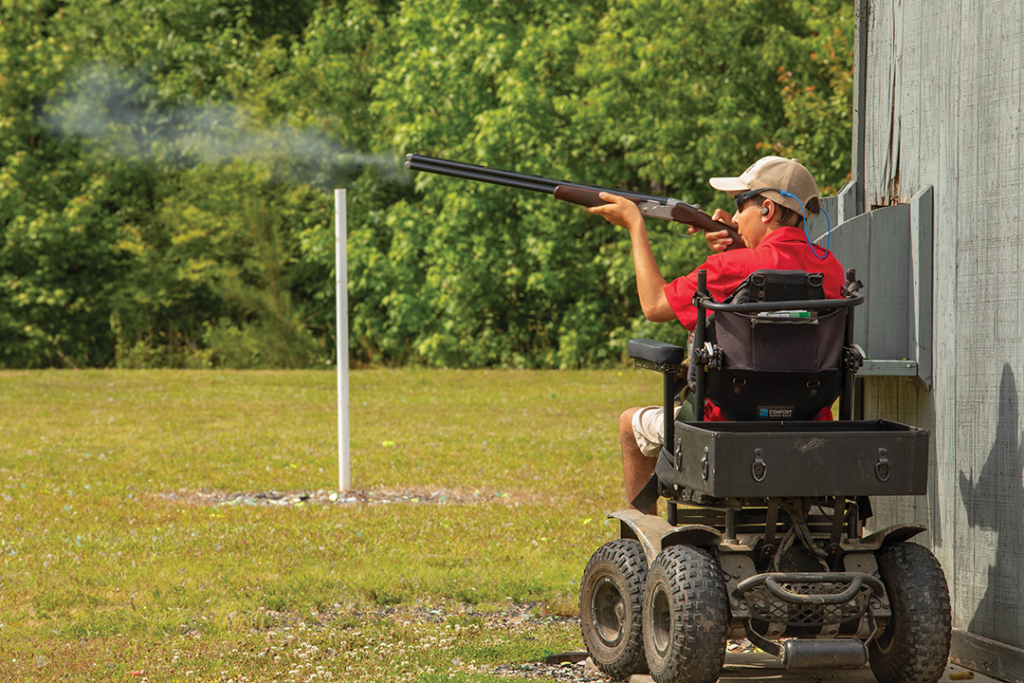Wyatt Hatcher’s death at age 11 spawned the Be Your Own Hero Foundation, a 501c3 organization that not only assists others as they navigate health crises but also provides a way for his family to honor a life cut far too short.
The measure of one’s life is how well he or she spends it, not its length. While that seems like a small comfort to those bidding early farewells to loved ones, especially children, it is nevertheless true. The way we live matters, especially when the life measured is shorter than we think it should have been.
Wyatt Hatcher lived a short life, just 11 years, but its impact is still felt by his parents Kevin and Jessica; brothers Aubrey, Cohen and John Rhett; sister Hannah; his extended family, caring friends, his community and families throughout Georgia. Thanks to the efforts of people who knew and loved Wyatt—and even those who did not—families going through health crises receive assistance through the Be Your Own Hero Foundation, a 501c3 organization established soon after his death. Kevin and Jessica see it not only as their way to help families but as a means to honor and remember their son.
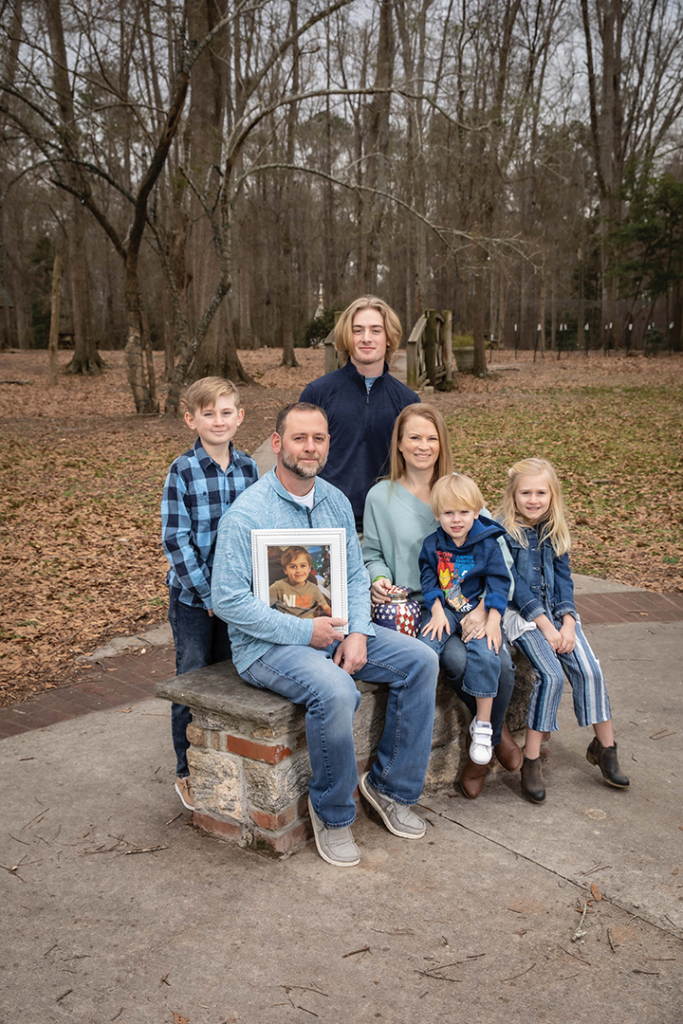
“What we’re doing is what Wyatt wanted to do when he grew up,” Kevin said. “We’re doing what he’s unable to do now.”
The Hatchers lived in Covington in 2008 when they were expecting Wyatt, their second child. They knew Kevin had a heart condition that could cause problems to their developing child. At around the 15th week of pregnancy, during a routine ultrasound, Jessica’s doctor found an anomaly related to Kevin’s heart condition. Several weeks later, she saw a cardiologist who performed a fetal echocardiogram.
“He said this what he has, and these are our options,” she said.
“What we’re doing is what Wyatt wanted to do when he grew up. We’re doing what he’s unable to do now.”
Kevin Hatcher
Wyatt was diagnosed with Hypoplastic Left Heart Syndrome, which occurs when the chambers and valves on the left side of the heart form incorrectly, affecting normal blood flow. The options were limited: surgical, transplant or palliative (do nothing). The palliative option was never on the table. “As soon as it came out of the doctor’s mouth,” Jessica said, “I said absolutely not.” The remaining options were three complex surgeries that would rebuild the heart and reroute the circulation. The goal was to keep Wyatt’s heart viable for as long as possible before transplantation; or they could list Wyatt for transplant right away and do everything possible to keep him stable. Either way, a heart transplant was part of Wyatt’s future. There was no cure.
The couple chose the surgical route, hoping to make Wyatt’s heart last as long as possible. Thankfully, Wyatt was born at 39 weeks on Oct. 20, 2008. He weighed six pounds, seven ounces, and other than the heart defect, he was healthy. He was transferred within hours of his birth to Children’s Healthcare of Atlanta and given medication to keep the ductus arteriosus—a sort of backup circulatory system which typically shuts down a few days after birth—functioning. Four days later, Wyatt underwent his first open-heart surgery: the Norwood Procedure. Dr. Paul Kirshbom, created a new left aorta—he used a Sano shunt—to connect to the right ventricle since the original aorta was too underdeveloped to handle any blood flow.
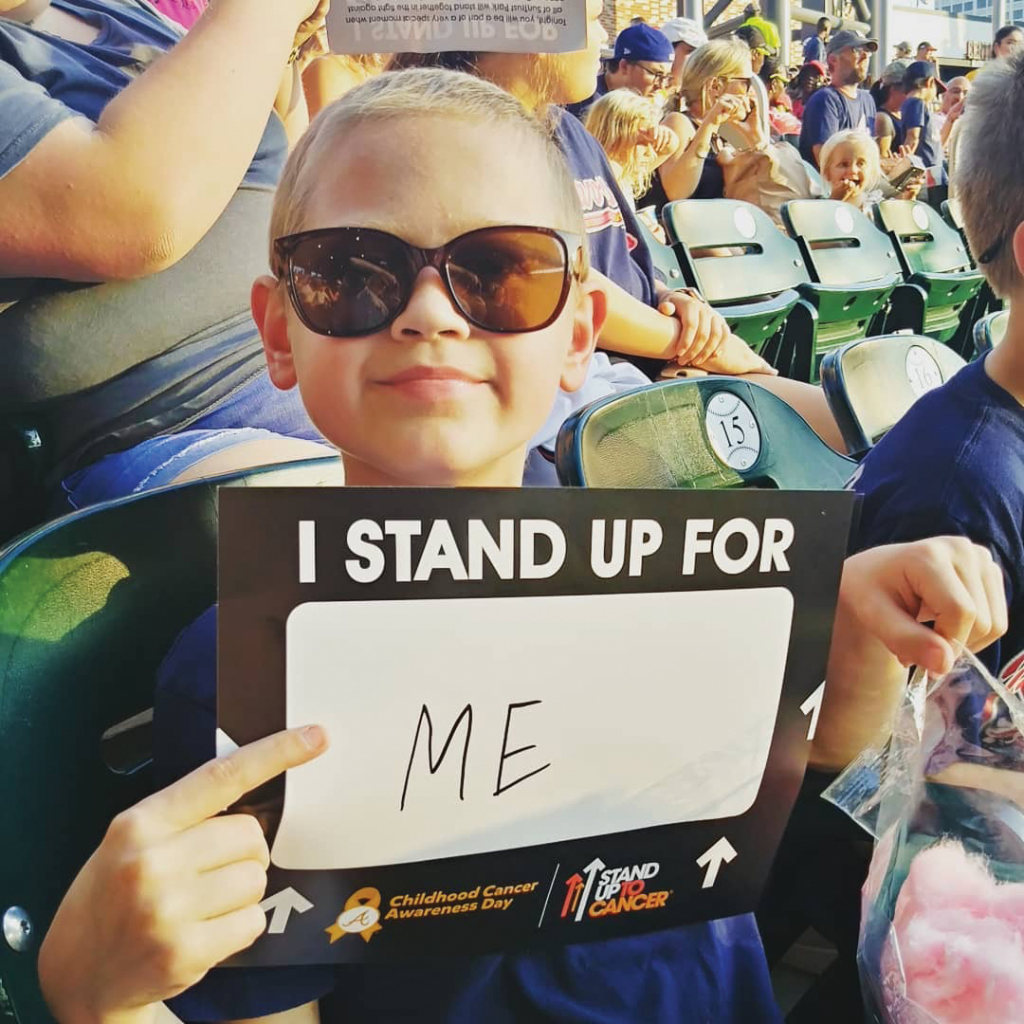
“Fortunately, there were no barriers to him having surgery,” Jessica said. “They told us to prepare for a month and possibly longer than that, but he did extremely well. He was in the hospital for three weeks and then came home.”
Once they got Wyatt home, they had to keep him there, away from family and friends, because of the shunt and the threat of infection. “We missed Christmas with the family because he could not get sick,” Jessica said.
The second surgery, the Bi-Directional Glenn Shunt Procedure, was done the following March when Wyatt was 4 months old, slightly ahead of the usual timeline. The Glenn procedure creates a direct connection between the pulmonary artery and the vessel bringing oxygen-poor blood from the upper part of the body to the heart. It is usually performed when the infant is between 4 and 6 months of age, but Wyatt’s heart was underperforming.
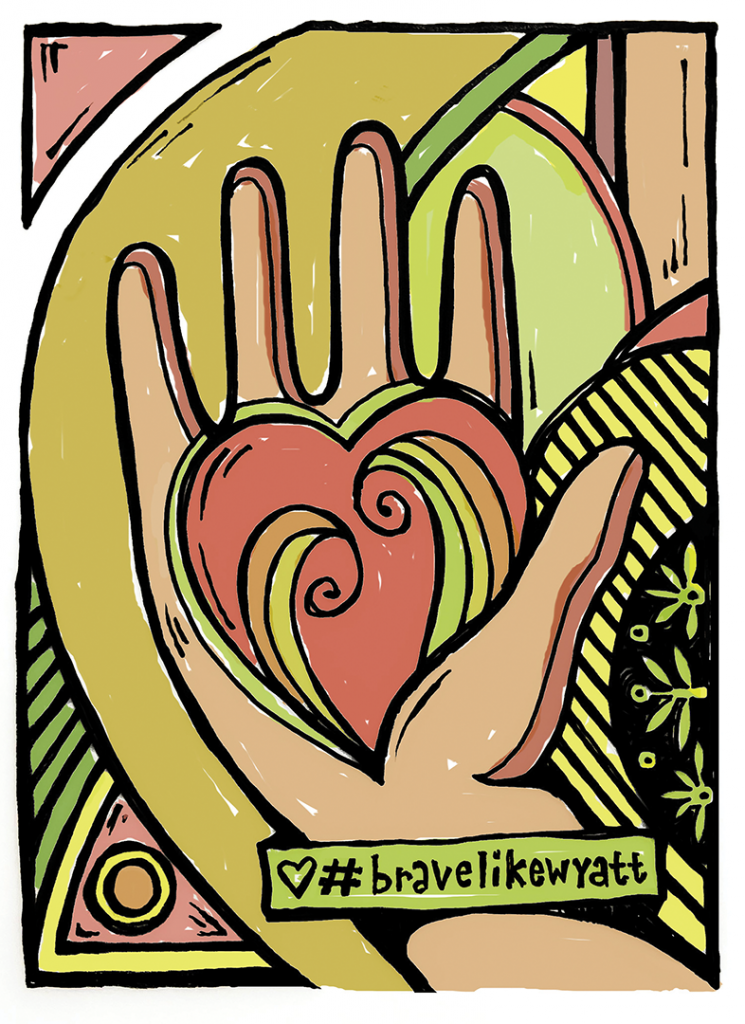
“His oxygen saturations were dipping too low,” Jessica said. “We went for a regular check-up and went straight to CHOA for a couple of days before they did the surgery. He was only there for five days afterward.”
The surgery was a success. Wyatt put on weight and did not require oxygen or other support. They enjoyed a few good months with their young son. However, around his first birthday, it was apparent that his heart was failing. Though he could pull up on furniture and stand, his circulation was not strong enough to allow him to walk. He was placed on the transplant list at 16 months of age.
“We were fortunate that Wyatt was stable enough with the right cocktail of [anti-rejection] medications and oxygen that we were able to wait at home and not be hospitalized,” Jessica said.
Weary after six months of no call, Jessica did not answer the phone when it rang on Sept. 17, assuming it was a telemarketer. After letting the call go, she reconsidered and checked Caller ID.
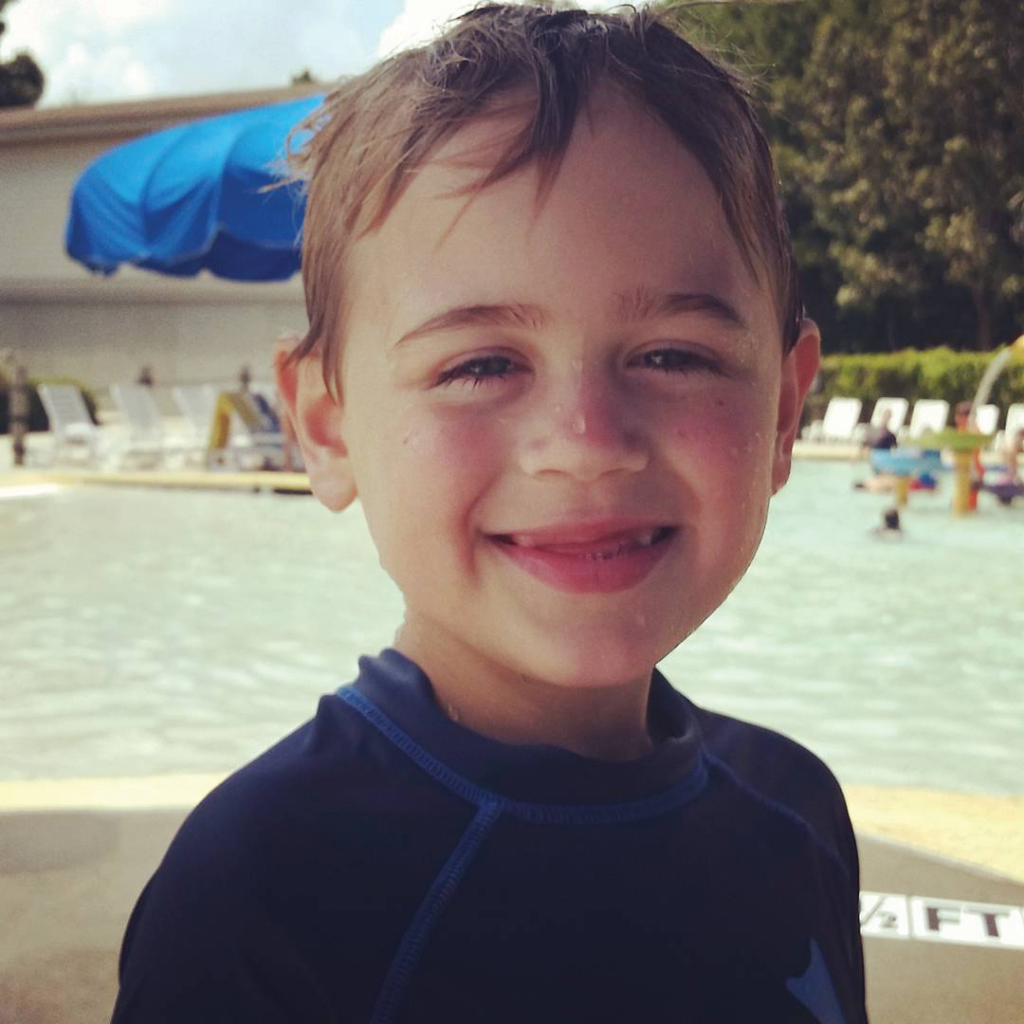
“I realized it was a cellphone number and thought, ‘This might be it,’” she said. “Then Kevin called me.” Not getting an answer at the house, the transplant team at CHOA called him at work. “I told my co-workers, ‘I have to go,’ and high-tailed it home,” Kevin said. “We loaded up and got to the hospital. Within a couple of hours, we were prepping, waiting for the heart to get there.”
Wyatt’s transplant surgery started around lunchtime and ended after 13 hours. He came through like a champ and was home 10 days later. The heart transplant radically changed the quality of his life.
“Seeing him for the first time after surgery, he was pink instead of blue, his lips and his fingertips,” Jessica said. “He had immediate strength. We weren’t two weeks out of surgery, and he was already trying to stand up and walk.”
The problem with organ transplantation is rejection, which is why Wyatt took strong anti-rejection drugs after surgery. Unfortunately, these medications bring side effects of their own, including post-transplant lymphoproliferative disorders, a form of cancer that only solid-organ transplant patients get as a result of medications they take to lower their immune systems.
In February 2019, after nine happy years of playing baseball, going to school, having fun at the beach and loving life, Wyatt was diagnosed with Stage 3 cancer in multiple organs. At first, the lab technicians thought it was a mistake, that his blood had gotten mixed up with that of another patient. Unfortunately, it was no mistake. He was admitted to CHOA again, this time as a cancer patient, to undergo four rounds of chemotherapy. To keep their spirits up, they created a slogan.
“We were sitting in the ICU, brainstorming,” Jessica said. “We were going to order those silicone wristbands. He’s the one that picked the hashtag ‘Brave like Wyatt.’ That’s how it got started.”
Rebecca McConnell, a licensed clinical social worker at CHOA, remembers meeting the family and Wyatt. McConnell saw them during his treatment admissions, which were often lengthened by complications.
“He had such a sweet spirit and was so calm,” she said. “I thought he was an old soul and seemed so wise.”
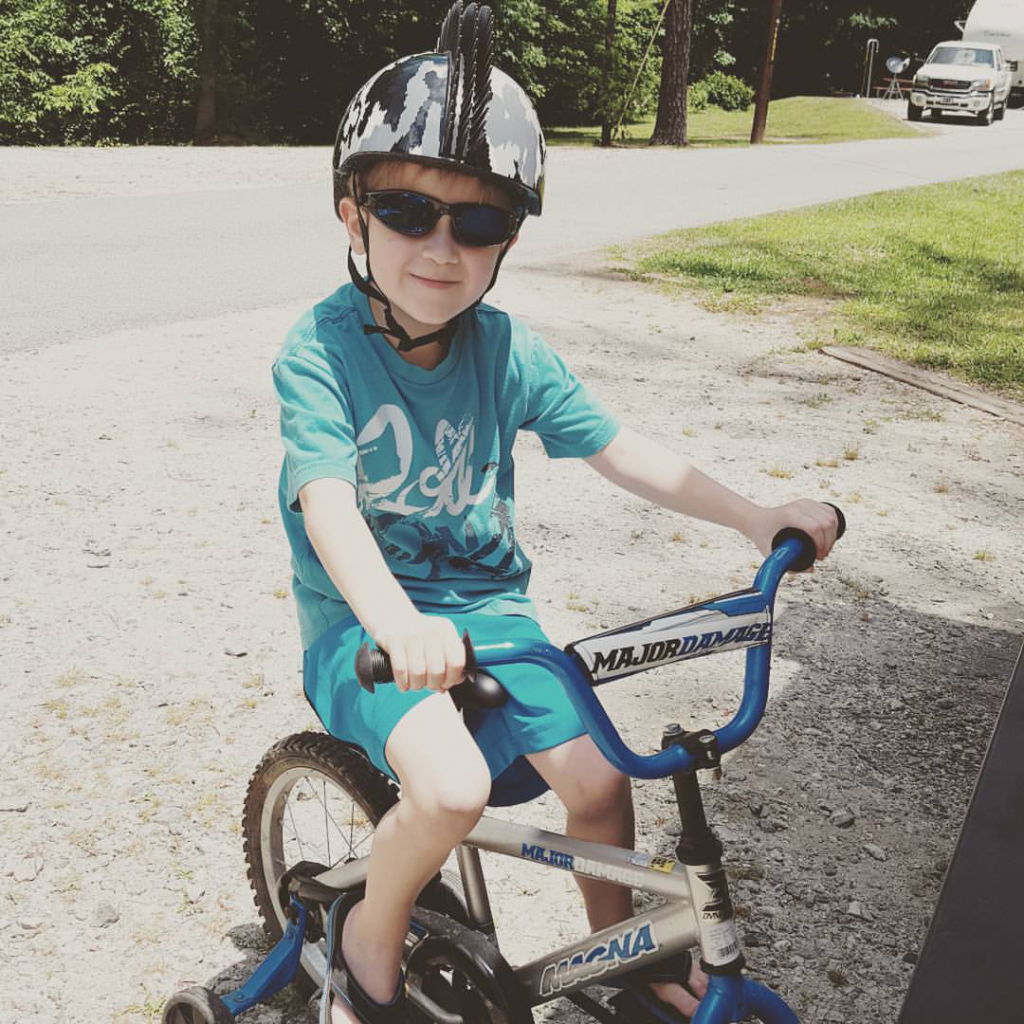
By August 2019, Wyatt finished his treatment, and his scans showed no evidence of cancer. McConnell talked to Kevin and Jessica about taking Wyatt to Disney World the following February as part of Bert’s Big Adventure. However, in December, Wyatt was admitted again as a cardiac patient. In a cruel twist, the chemotherapy had damaged the transplanted heart. While another heart transplant would not have been out of the question, the United Network for Organ Sharing rules state that Wyatt had to be cancer-free for one full year before he could be listed again.
The Hatchers did what they could to make Wyatt’s final month memorable. CHOA allowed the entire family of seven to spend Christmas together in the hospital room. As they saw his vitals trending in the wrong direction in January 2020, Kevin and Jessica decided to take Wyatt off the medication keeping his heart functioning and let nature take its course. Wyatt died on Jan. 10, 2020, surrounded by people that loved him. Jessica’s uncle, Marcus Barela, wanted to do something tangible in Wyatt’s memory.
“He said, ‘We’d like to turn this hashtag into something to help other families like yours in whatever ways they need, be it a bill paid because they’re not working because their child is in the hospital, or food or gas or if they need Mr. Pibb,’” Jessica said.
With Barela’s contribution and those from friends, they started the Be Your Own Hero Foundation. They collected items to help families do laundry, restocked pantries and purchased iPads for children who were hospitalized. Through Barela’s connection to NASCAR, #bravelikewyatt received a massive awareness boost when it was featured on Michael McDowell’s No. 34 car in the NASCAR Series race at Atlanta Motor Speedway in March 2020.
“Every family is different,” Jessica said. “It’s important to us to provide the family with what they need, not what we think they need.”
They work with McConnell to identify where they can help. One area where they have made a difference is a sensitive but necessary one, according to McConnell.
“I told her we have organizations that help with hospital bills but so few resources to help families with their final expenses for their child,” she said. “She’s helped pay for at least one funeral expense and headstone. It was such a gift.”
The Be Your Own Hero Foundation is not only a gift to a community of families walking through difficult circumstances but a gift to the Hatchers, as well.
“Wyatt never met a stranger,” Kevin said. “He’d meet you for 15 minutes and climb up in your lap and talk to you.”
His impact continues to be felt.
“People loved him,” Jessica said. “This is the best way we can celebrate the best parts of everything that happened.”
For more information on the Be Your Own Hero Foundation, visit BraveLikeWyatt.com.
Click here to read more stories by Patty Rasmussen.

